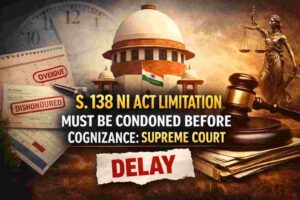- Karnataka High Court directed Bengaluru police not to harass Ola Electric CEO Bhavish Aggarwal and senior official Subrat Kumar Das while investigating an employee’s suicide case.
- The deceased, K. Aravind, a 38-year-old Ola engineer, reportedly accused company officials of mental harassment and unpaid dues in a suicide note.
- Aggarwal and Das have filed a petition to quash the FIR registered under Section 108 (abetment of suicide) of the Bharatiya Nyaya Sanhita 2023.
- The court allowed the investigation to continue but barred police from using the probe as a pretext for harassment, while seeking responses from the State and the victim’s family.
The Karnataka High Court has issued an interim order restraining the Bengaluru police from harassing Ola Electric CEO Bhavish Aggarwal and a senior company official during an ongoing investigation into the alleged suicide of an Ola Electric employee.
Justice Mohammed Nawaz, presiding over the matter, passed the order on October 17, 2025, while hearing a plea filed by Aggarwal and Subrat Kumar Das, Head of Homologation Engineering at Ola Electric.
The petitioners approached the High Court seeking to quash the First Information Report (FIR) registered against them under Section 108 of the Bharatiya Nyaya Sanhita, 2023 (Abetment of Suicide).
Background of the Case
The case arises from the tragic death of K. Aravind, a 38-year-old engineer employed with Ola Electric since 2022.
According to the complaint filed by his brother, Ashwin Kannan, Aravind allegedly took his own life on September 28, 2025, at his residence in Chikkalasandra, Bengaluru. The family claims he had been facing severe mental harassment and financial pressure from his superiors at Ola Electric.
The complaint further states that Aravind’s salary and certain allowances had been withheld by the company, which pushed him into a state of despair. More alarmingly, a suicide note reportedly recovered from his residence explicitly named Bhavish Aggarwal and Subrat Kumar Das as being responsible for his mental anguish and eventual death.
Following the complaint, the Subramanyapura Police Station registered FIR No. 372/2025 on October 6, 2025, against Aggarwal, Das, and other unnamed company officials.
The High Court’s Intervention
During the preliminary hearing, the petitioners’ counsel argued that the FIR was malicious, baseless, and an abuse of legal process, contending that there was no direct evidence linking the accused to the employee’s death.
The defense maintained that corporate decision-making and performance-related expectations, though stressful, cannot be equated to criminal abetment unless there is a clear act of instigation or intention to drive the person to suicide.
After hearing initial submissions, Justice Mohammed Nawaz observed that while the investigation may continue, the police must act within the bounds of law and ensure that the petitioners are not subjected to undue harassment or intimidation under the pretext of investigation.
The Court’s interim direction states:
“The police who are investigating into the case registered in Cr. No. 372/2025 of Subramanyapura Police Station, Bengaluru City, shall not harass the petitioners in the guise of investigation.”
The Bench also directed the State of Karnataka and the complainant (the deceased’s brother) to file their responses before the next hearing.
The Family’s Allegations and Financial Discrepancies
According to the complaint, two days after Aravind’s death, a sum of ₹17,46,313 was transferred to his bank account. The family considers this transaction suspicious and alleges that it might have been an attempt by the company to cover up pending dues or mitigate liability after the incident.
They further claim that Aravind had repeatedly raised concerns about workplace harassment and financial exploitation but his grievances went unaddressed.
Legal Context: Section 108 of the Bharatiya Nyaya Sanhita (BNS)
The offence of abetment of suicide under Section 108 of the BNS, 2023 (which replaced Section 306 of the Indian Penal Code) requires proof of a direct or indirect act of instigation, or any conduct which intentionally aids or provokes the person to take such an extreme step.
Courts have consistently held that for an accusation of abetment to hold ground, mere allegations of harassment or professional conflict are not sufficient unless they demonstrate clear mens rea (criminal intent) on part of the accused.
Legal observers note that this case will likely hinge on whether the deceased’s suicide note and other evidence show a proximate causal link between the alleged actions of the company officials and the act of suicide.
What Lies Ahead
The High Court’s order is interim in nature, meaning that it does not terminate the investigation but only ensures that the petitioners are not subjected to coercive action or harassment while the inquiry proceeds.
The matter will now continue before the Karnataka High Court, where the State and the complainant’s counsel are expected to file their detailed objections. Depending on the court’s assessment of the evidence and legal arguments, it may either quash the FIR or allow the investigation to continue under judicial supervision.
Follow The Legal QnA For More Updates…















